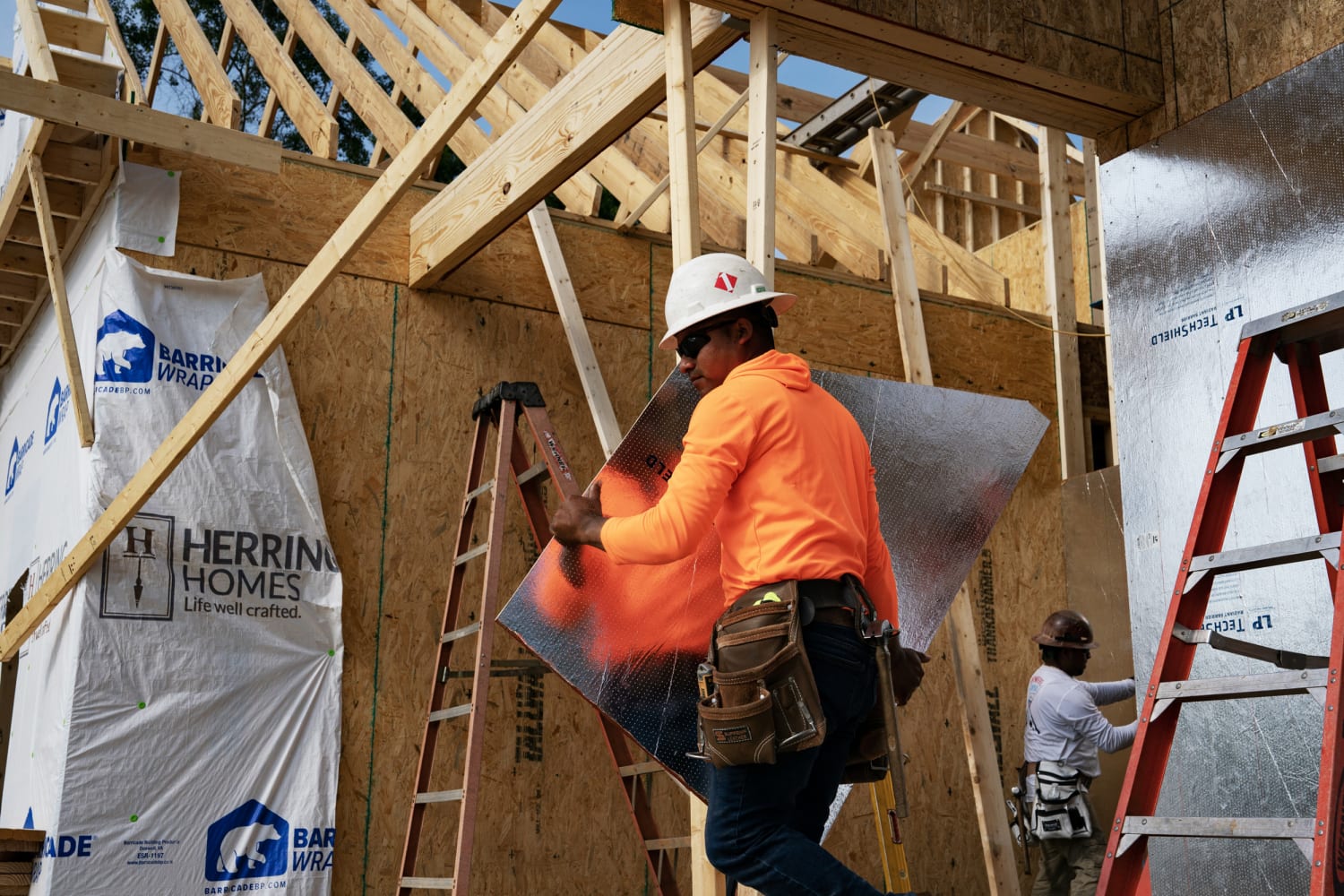[ad_1]

The U.S. added more jobs than expected in August, a sign of resilience for a labor market under pressure from Federal Reserve interest rate hikes.
Nonfarm payrolls grew by a seasonally adjusted 187,000 for the month, above the estimate for 170,000, the U.S. Bureau of Labor Statistics reported Friday.
However, the unemployment rate was 3.8%, up significantly from July and the highest since February 2022. That increase came as the labor force participation rate increased to 62.8%, the highest since February 2020, just before the Covid pandemic declaration.
Average hourly earnings increased 0.2% for the month and 4.3% from a year ago. Both were below respective forecasts of 0.3% and 4.4%.
Healthcare showed the biggest gain by sector, adding 71,000. Other leaders were leisure and hospitality (40,000), social assistance (26,000) and construction (22,000).
Transportation and warehousing lost 34,000 and information declined by 15,000.
While the nonfarm payrolls growth continued to defy expectations, previous months’ counts were revised considerably lower.
The July estimate moved down by 30,000 to 157,000. June was revised lower by 80,000 to 105,000, making that the smallest month gain since December 2020.
The unexpected increase in the jobless rate came as the rolls of the unemployed grew by 514,000. The household count of those employed increased by 222,000.
When it comes to the closely watched jobs count, August is often one of the most volatile months of the year and can be subject to sharp revisions later. While the initial estimate and final counts in 2022 were little changed, the 2021 figure ended up more than doubled in the final count.
August’s jobs reading comes at a pivotal time as Federal Reserve officials look to chart a course forward for monetary policy.
Markets widely expect the Fed to skip a rate increase at its September 19-20 meeting. However, market pricing still points to about a 38% probability of a final hike at the Oct. 31-Nov. 1 meeting, according to CME Group data.
Recent data has painted a mixed picture of where the economy is headed, with overall growth holding steady as consumers continue to spend, but the labor market beginning to loosen from historically tight conditions.
Job openings, for instance, fell to 8.83 million in July. That’s still well above where they were prior to the Covid pandemic but is the lowest level since March 2021. That equated to 1.5 openings for every worker the BLS counts as unemployed.
At the same time, inflation has shown signs of cooling even though it remains well above the level where Fed policymakers feel comfortable.
The Commerce Department reported earlier this week that personal consumption expenditures prices, the Fed’s preferred inflation gauge, rose just 0.2% in July. That equated to a 3.3% 12-month gain, or 4.2% when excluding food and energy — the “core” level that the Fed thinks is a better measure of longer-term inflation.
Consumer spending was strong during the month, rising 0.6% when adjusted for inflation even though real disposable personal income fell 0.2%. Households have been using credit cards and savings to compensate, as the personal savings rate fell to 3.5% in July, down sharply from the 4.3% level in June.
The department also reported that gross domestic product increased at a 2.1% annualized rate for the second quarter, a level that is still above what the Fed considers trend growth for the U.S. economy but below the initial 2.4% estimate.
However, the Atlanta Fed is tracking third-quarter GDP growth at a robust 5.6% pace. That counters long-running expectations that the economy is likely to hit at least a shallow recession following a series of aggressive Fed interest rate hikes.
[ad_2]
Source link
